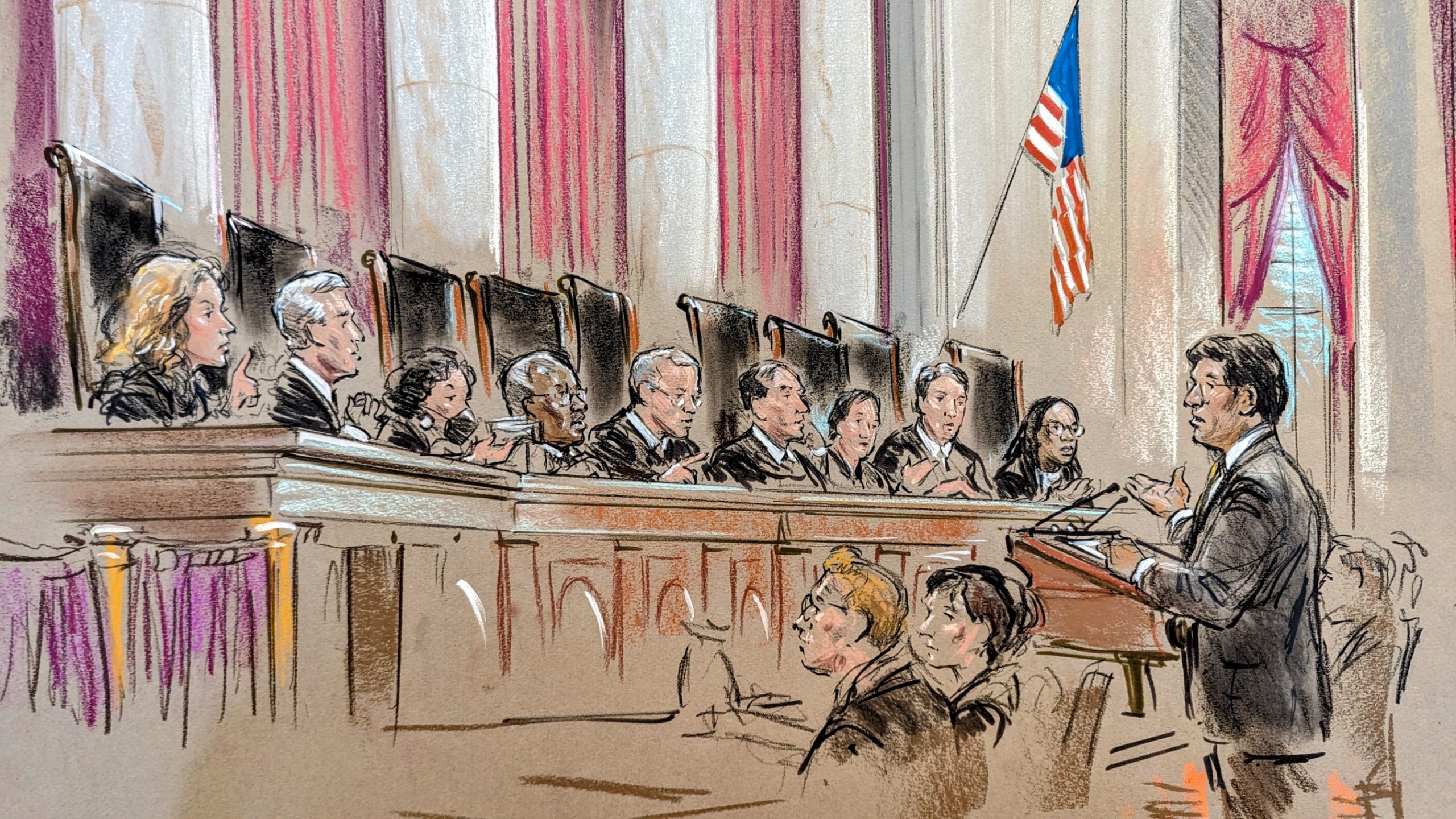May death row inmate reopen habeas case if lawyer abandons him? ABA urges SCOTUS to decide
U.S. Supreme Court
May death row inmate reopen habeas case if lawyer abandons him? ABA urges SCOTUS to decide
October 31, 2023, 11:28 am CDT
Three federal appeals courts have reached a contrary conclusion to the 5th U.S. Circuit Court of Appeals at New Orleans in cases of attorney abandonment, according to an amicus brief filed by the ABA with the U.S. Supreme Court in a case of a death row inmate. Image from Shutterstock.
The ABA has filed an amicus brief urging the U.S. Supreme Court to hear the case of a death row inmate whose appointed habeas lawyer “functionally” abandoned him.
The ABA’s Oct. 30 amicus brief asks the Supreme Court to grant cert in the case of Joseph Gamboa of Texas, according to an ABA press release.
Gamboa’s appointed habeas lawyer told Gamboa that he thought that he was guilty, failed to investigate facts or develop legal claims, and conducted a day of legal research, according to Gamboa’s cert petition.
After “virtually no work on the case,” the habeas lawyer “filed a sham petition containing seven
claims copied and pasted from the petition of another client,” the cert petition says. The claims “contained generic, legally foreclosed challenges to the Texas death penalty scheme” and even used the other’s client’s name in the prayer for relief.
The habeas lawyer then conceded that Gamboa’s claims were foreclosed after the state answered Gamboa’s petition. The concession was filed past the deadline. Gamboa filed a pro se motion for new counsel. The 5th U.S. Circuit Court of Appeals at New Orleans denied Gamboa’s motion, along with the habeas petition.
Precedent in the 5th Circuit holds that Federal Rule of Civil Procedure 60(b) cannot be used to reopen a habeas proceeding, even when an inmate’s lawyer has abandoned him. Three other federal appeals courts have reached a contrary conclusion in cases of attorney abandonment, the ABA points out in its amicus brief.
Supreme Court review “is needed to ensure uniformity of federal habeas administration in the lower courts and to avoid unjust and unnecessary consequences when attorney misconduct rises to the level of abandonment,” the ABA brief says. “The 5th Circuit’s harsh rule poses a unique threat to the legitimacy of the capital system.”
Federal law grants habeas petitioners a right to counsel with greater experience in capital cases, reflecting the aim of providing fundamental fairness, according to the ABA brief. The ABA also seeks to ensure high-quality representation in its Death Penalty Guidelines, which set out a national standard of practice in capital cases.
Under the guidelines, the duties of capital counsel include an aggressive investigation, litigation of all “arguably meritorious” issues, close contact with the client on litigation developments, and formation of an appropriate defense team.
Assuming that Gamboa’s allegations are true, “counsel departed so completely from the prevailing standards for capital representation set out in the guidelines that he failed to act as Mr. Gamboa’s representative,” the ABA brief says.
Gamboa is represented by lawyers from Federal Defender Services of Eastern Tennessee and Arnold & Porter Kaye Scholer. Kellogg, Hansen, Todd, Figel & Frederick filed the amicus brief pro bono on behalf of the ABA.
The case is Gamboa v. Lumpkin.






